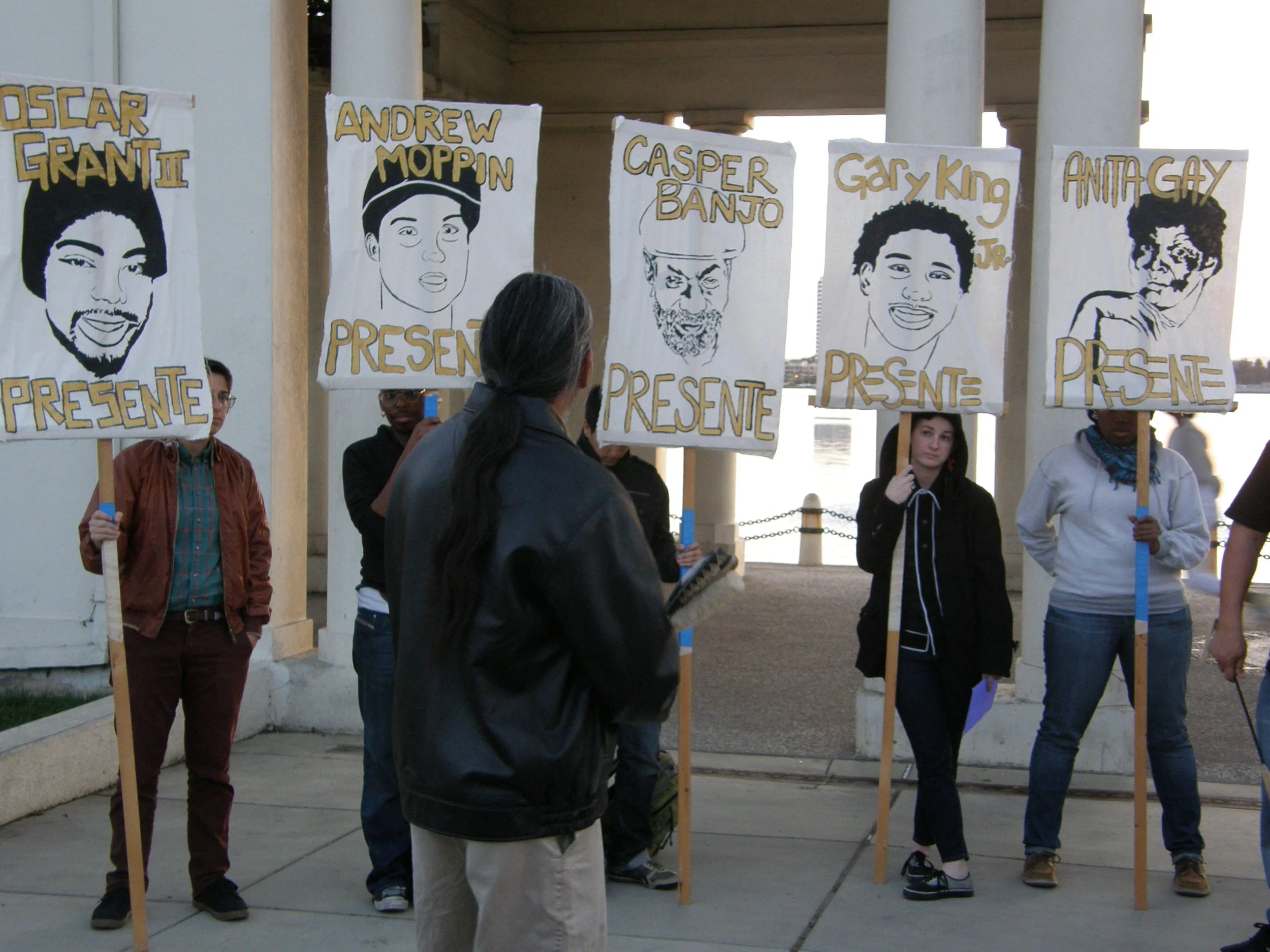Image by Kevin Caplicki
Policing is at the core of real threats to safety and health, as policing prevents people from meeting their basic needs. Encounters with police often result in physical harm, death or in survivors and witnesses acquiring Post-traumatic Stress Disorder (PTSD). Even "non-lethal” or chemical weapons such as pepper spray and tear gas can cause lung-related problems, delayed menstruation, miscarriages and still births. Even when policing is seen as “successful” for locking a person up in prison, the result is the deterioration of a person’s health once imprisoned. But also the systems of policing and healthcare are interconnected, relying on one another in many ways.
In a crisis, for instance, cops are often the primary “first responders” in 911 calls and emergency plans. This prioritization of policing increases people’s interactions with police and means more harassment and arrests for more vulnerable people, including in instances of domestic violence, migrants with or without legal documentation and homeless people. With policies like mandated reporting, many people do not pursue the help they need from public resources such as schools and hospitals when facing a crisis due to fear of police involvement and escalation of violence.
Additionally, some of the main reasons that people don’t have healthcare are the very same factors that put people at risk of being locked up or being harmed by police. While insurance doesn’t always guarantee perfect healthcare, people without insurance suffer from much higher rates of diseases such as cancers, heart disease, arthritis and mental illness. These are all conditions that can be managed with early identification and consistent treatment.
Learn more about how health and policing are interconnected by checking out our first Oakland Power Project here or read our full report on our findings here.
Mental Health
Mental health issues are often a sign that people’s other health needs aren’t being met. Therefore, policing mental health is never an option that will create real solutions.
Mental health (and the ways our communities respond to it) makes it more likely that people will come in contact with policing and imprisonment in the first place. Mental illness makes it harder to hold a job, and it can lead to rejection by family and friends. One common result, unfortunately, is homelessness. When homeless, or even just walking down the street, people with mental health issues are at risk of surveillance for “quality of life crimes” like being a “nuisance,” or loitering. Homeless people also experience frostbite, leg ulcers, and respiratory illnesses because of the lack of consistent housing, but can’t access basic care due to no insurance and fear of police. Many times, people call the police because they don’t think they know how to de-escalate a situation with someone struggling with mental health or feel like they are unable to provide basic healthcare to others.
Image by Mary Tremont
Policing is not a viable option for any health issue, as imprisonment makes health and any mental illness worse. Once locked up, people face severe stress from physical and emotional abuse in prison. And they lose the treatment and support networks they once had before prison. Hospitals and mental health facilities also often share many of the same practices that prisons do. Both state hospitals and prisons punish by denying freedom of movement, and both rely on physically isolating people, especially people struggling with mental health. They often don’t use individualized problem solving, or emotionally safe and personalized counseling.
Dealing with mental health and improving healthcare in our society means thinking about the increased support that some people in our communities need. It may be as irresponsible to let some people “fend for themselves” as it is to lock them up. But it’s also often as cruel and destructive to lock away “mentally ill” people in hospitals as it is in prisons.
Moving Forward: Providing Healthcare, not Punishment
We need to create new options. Locally based programs should offer personalized support to people, without punishing them for their illness. Care should be based on individualized solutions, not high levels of medication and restrictions.
By not using punishment as a response to human insecurity and struggles for health, we can begin to prioritize basic needs like health care.
Here are some articles that reveal the many intersections of policing and healthcare:
- “Community Groups Work to Provide Emergency Medical Alternatives, Separate from Police” by Candice Bernd featuring the Oakland Power Projects’s Anti-Policing Healthworkers Cohort
- “All of Chicago–not just its police–must see systemic change to save black lives” by Mariame Kaba of Project Nia in Chicago
- “Health Effects of Tear Gas & Pepper Spray” by the War Resisters League’s Demilitarize Health & Security Initiative
- “Lincoln Detox Center: The People’s Drug Program”: An Interview with Vicente “Panama” Alba (a former member of the Young Lord’s Party in New York) by Critical Resistance
Do you want to build up your skills in providing healthcare to your community?
Get trained up in de-escalation & basic healthcare strategies that don’t rely on policing, by signing up for one of our “Know Your Options” Workshops on this form here.


